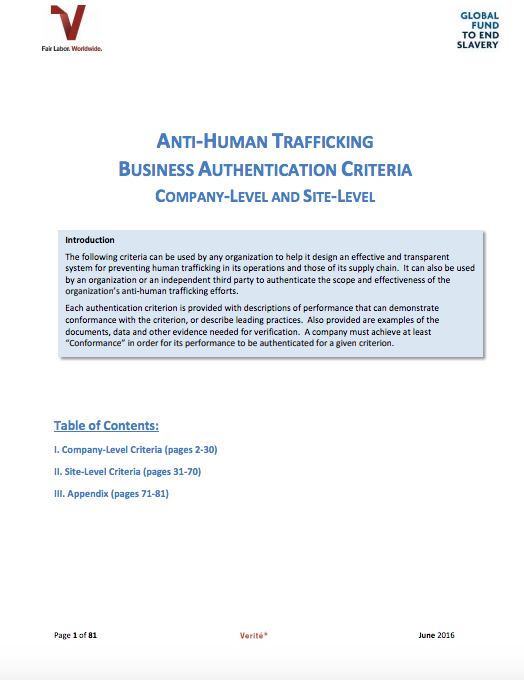The following criteria can be used by any organization to help it design an effective and transparent system for preventing human trafficking in its operations and those of its supply chain. It can also be used by an organization or an independent third party to authenticate the scope and effectiveness of the organization’s anti-human trafficking efforts. Each authentication criterion is provided with descriptions of performance that can demonstrate conformance with the criterion, or describe leading practices. Also provided are examples of the documents, data and other evidence needed for verification. A company must achieve at least “Conformance” in order for its performance to be authenticated for a given criterion.

